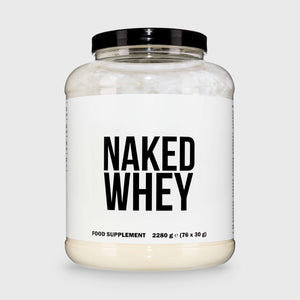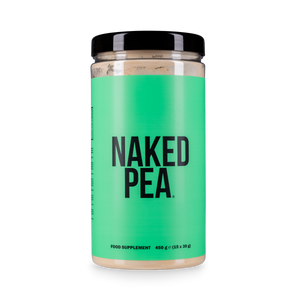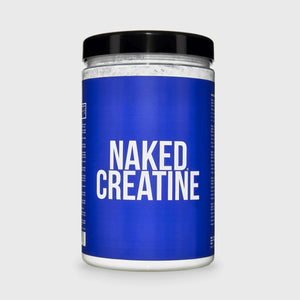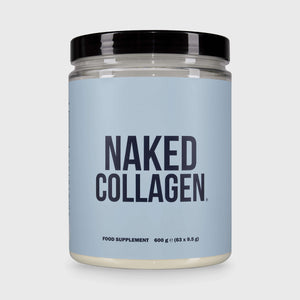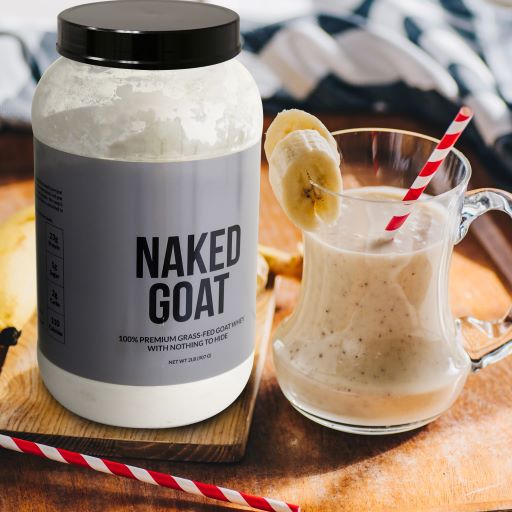
The bottom line: Research shows that goat whey protein contains more immune-related proteins and is generally more digestible than cow whey protein, making it potentially superior for individuals with digestive sensitivities or those seeking enhanced immune support.
However, both provide excellent muscle-building benefits and nutritional value [1, 2, 3].
**Disclaimer: This article is for informational purposes only and does not constitute medical or dietary advice. Always consult with a healthcare provider or registered dietitian before making changes to your protein intake, especially if you have allergies, digestive conditions, or other health concerns.
How Do Goat and Cow Whey Proteins Actually Differ in Your Body?

Many people wonder whether the source of their whey protein really makes a difference for their health and fitness goals. Let's take a look at what happens in your body when you consume these two types of protein to understand their unique biological effects.
Both goat and cow whey proteins undergo the same basic production process. Milk is heated or treated with enzymes to separate into solid curds and liquid whey.
The whey is then filtered, concentrated, and dried into the powder form you purchase. However, the similarities largely end there.
Here's how these proteins differ at the molecular level:
Recent proteomic analyses reveal significant differences in the types and quantities of proteins present in goat versus cow whey.
Goat whey contains a broader variety of immune-related and metabolic proteins, while cow whey has its own distinct protein markers that affect different biological processes [1, 2, 4].
Research suggests that goat whey shows higher levels of proteins involved in immune defense and metabolic regulation compared to cow whey.
These differences influence how your body responds to each protein source, particularly in areas of immune function, antioxidant capacity, and digestive comfort [1, 2, 5].
This means that while both proteins provide the essential amino acids needed for muscle protein synthesis, they may offer different additional health benefits based on their unique protein compositions.
What Does Current Research Show About Protein Composition Differences?

If you've ever wondered about the scientific evidence comparing these two protein sources, multiple controlled studies provide detailed insights into their compositional and functional differences.
Proteomic research using advanced mass spectrometry techniques has identified specific protein markers that distinguish goat whey from cow whey.
These studies consistently show that goat whey contains higher abundances of proteins involved in immune system function and cellular metabolism [1, 2, 4].
Key compositional differences include:
|
Protein Component |
Goat Whey |
Cow Whey |
Functional Impact |
|
Immune-related proteins |
Higher abundance |
Lower abundance |
Enhanced immune modulation |
|
Metabolic proteins |
More diverse |
Less diverse |
Improved metabolic regulation |
|
Digestive enzymes |
More active |
Less active |
Better digestibility |
|
Antioxidant proteins |
Higher levels |
Lower levels |
Enhanced antioxidant capacity |
Research demonstrates that these compositional differences translate into measurable biological effects.
Animal studies show that both types improve immune function and gut health, but goat whey may offer additional advantages in immune modulation and antioxidant activity [6, 7, 8].
A 2019 study on rats fed sheep/goat milk whey protein for 28 days found that sheep/goat milk whey may potentially act protectively against disorders induced by mTOR overactivation, such as cancer, metabolic disorders, and neurological conditions.
Interestingly, this study also suggested that the mode of action appears to mimic that of fasting and its perceived health benefits.
Another study in 2018 on rats fed sheep/goat milk whey protein for 28 days determined that sheep/goat whey protein protects against the detrimental effects of oxidative stress and enhances the antioxidant defense mechanisms in blood and tissues in rats.
Keep in mind that these protein profile differences stem from the natural dietary and metabolic differences between goats and cows, which concentrate in their respective milk proteins during production.
Why Is Goat Whey Protein More Digestible Than Cow Whey?

This can seem confusing when you consider that both proteins undergo similar processing methods.
Many people assume that whey protein digestibility depends primarily on processing techniques, but the source animal significantly influences how your digestive system handles the protein.
Goat whey protein demonstrates superior digestibility through several mechanisms:
Research shows that goat milk proteins, including whey, form smaller protein aggregates in the acidic environment of your stomach compared to cow proteins. These smaller clumps pass through your digestive tract more efficiently, reducing the likelihood of digestive discomfort [3, 9].
Additionally, goat whey contains lower lactose levels than cow whey, making it more tolerable for individuals with lactose sensitivity. The peptide profile in goat whey is also distinct, which may benefit people with sensitivities to cow milk proteins [3, 9].
Goat whey provides prebiotic benefits through naturally occurring oligosaccharides that support beneficial gut bacteria growth.
Studies show that both goat and cow whey increase beneficial bacteria like Lactobacillus, but goat whey's prebiotic content may provide additional digestive support [6, 7].
A 2023 study explored probiotic whey-based beverages from cow, sheep, and goat milk and found that, while all forms improved quality compared to the control, beverages produced from goat milk protein excelled.
What does this mean for your supplement choice? If you experience digestive discomfort with cow whey protein, goat whey may offer a more comfortable alternative while providing equivalent muscle-building benefits.
How Do These Proteins Compare for Muscle Building and Performance?

So, how much do the compositional differences actually matter for your fitness goals? Research suggests that both proteins provide excellent muscle-building support, but they may work through slightly different pathways.
For muscle protein synthesis optimization: Both goat and cow whey contain complete amino acid profiles with adequate leucine content to maximally stimulate muscle protein synthesis.
A typical 25-gram serving of either protein provides approximately 2.5 to 3 grams of leucine, which is optimal for triggering the muscle-building response [1, 2].
For recovery and adaptation: Animal studies indicate that both proteins improve antioxidant capacity and cellular recovery markers. However, goat whey's higher antioxidant protein content may provide additional support for exercise-induced oxidative stress [6, 7, 8].
|
Performance Factor |
Goat Whey |
Cow Whey |
Research Support |
|
Muscle protein synthesis |
Excellent |
Excellent |
Both provide complete amino acids |
|
Digestive comfort |
Superior |
Good |
Goat whey forms smaller aggregates [3] |
|
Antioxidant support |
Higher |
Moderate |
More antioxidant proteins in goat [6, 7] |
|
Immune function |
Enhanced |
Good |
More immune proteins in goat [1, 2] |
For most fitness enthusiasts: The muscle-building benefits are essentially equivalent between the two proteins. Your choice should be based on digestive tolerance, immune support goals, and personal preferences rather than expectations of superior muscle gains.
Are There Any Individual Factors That Affect Your Choice?

If you've ever experienced digestive issues with protein supplements, several personal factors may influence whether goat or cow whey works better for your individual needs.
Digestive sensitivity considerations: Individuals with lactose intolerance, milk protein allergies, or general digestive sensitivities may find goat whey more tolerable. Research supports that goat proteins are less allergenic and more easily digested than cow proteins [3, 9].
Immune system support goals: Those seeking enhanced immune function alongside muscle-building benefits may prefer goat whey due to its higher concentration of immune-related proteins.
This may be particularly relevant for athletes under high training stress or individuals with compromised immune function [1, 2, 5].
Budget and accessibility factors: Your geographic location, budget constraints, and supplement routine complexity all influence practical protein selection. For many people, high-quality cow whey provides excellent results at a more accessible price point.
Individual factors that may favor goat whey:
-
History of digestive issues with cow dairy products
-
Autoimmune conditions or immune system concerns
-
Preference for less common, potentially more sustainable protein sources
-
Adequate budget for premium protein supplements
When to consult a professional: If you have severe food allergies, autoimmune conditions, or chronic digestive disorders, work with a registered dietitian to determine the most appropriate protein source for your individual medical situation.
How Should You Implement Either Protein for Optimal Results?

So, how can you maximize the benefits of your chosen protein source? Research provides clear guidance for implementation that applies to both goat and cow whey proteins.
For muscle building optimization: Consume 25 to 30 grams of either protein within 2 hours post-exercise. Both proteins provide adequate leucine to maximally stimulate muscle protein synthesis when consumed in these amounts [1, 2].
For digestive comfort: Start with smaller serving sizes (15 to 20 grams) if transitioning to a new protein source, gradually increasing to full serving sizes as your digestive system adapts. This approach works particularly well when switching to goat whey.
Timing strategies that maximize benefits:
-
Post-workout: 25 to 30 grams within 2 hours of training
-
Between meals: 20 to 25 grams to maintain amino acid availability
-
Before bed: 25 to 30 grams for overnight recovery support
-
Morning: 25 to 30 grams to break overnight fasting period
Quality indicators to evaluate regardless of source:
-
Minimal ingredient lists with recognizable components
-
Third-party testing for purity and potency
-
Appropriate amino acid profiles with adequate leucine
-
Processing methods that preserve bioactive proteins
Common Myths About Goat vs Cow Whey Protein Debunked

Let's address some widespread misconceptions about these protein sources that often influence purchasing decisions without scientific foundation.
Myth: Goat whey protein builds muscle faster than cow whey
Reality: Both proteins provide identical amino acid profiles for muscle protein synthesis. The muscle-building benefits are equivalent when consumed in appropriate amounts [1, 2].
Choose based on digestive tolerance and additional health goals rather than muscle-building expectations.
“As a Registered Dietitian, I have met with many clients who suffer through the digestive discomforts of high-protein products and assume that’s just part of the sacrifice for muscle growth. If you aren’t comfortable, that’s a sign your body is trying to tell you to make a change.”
Myth: Cow whey protein is always more processed and less natural
Reality: Processing methods for both proteins can range from minimal to extensive depending on the manufacturer. Both can be produced using gentle filtration methods that preserve bioactive compounds. Quality depends on processing standards rather than source animal.
Myth: Goat whey is significantly higher in protein content
Reality: The protein content is virtually identical between high-quality goat and cow whey products. The differences lie in the types of proteins present rather than total protein concentration [1, 2, 4].
Myth: You need goat whey to avoid all digestive issues
Reality: While goat whey is more digestible for many people, cow whey isolate products with removed lactose and processed to reduce allergenic proteins can also provide excellent digestive tolerance for most individuals [3].
Best Protein Choice Strategies for Different Goals in 2025
Understanding how to match protein selection to your specific health and fitness objectives helps optimize your supplement investment and results.
Goat whey protein is ideal for: Individuals with digestive sensitivities to cow dairy products who want enhanced immune system support alongside muscle-building benefits.
This option works excellently for those willing to invest in premium protein sources with potential additional health advantages.
Cow whey protein works well for: Most fitness enthusiasts seeking proven muscle-building results at an economical price point. This choice is perfect for individuals without digestive sensitivities who prioritize cost-effectiveness and wide product availability.
Both proteins are excellent for: Anyone seeking high-quality, complete protein to support muscle building, recovery, and daily protein needs.
The choice between them should reflect your digestive tolerance, immune support goals, and budget considerations rather than expectations of vastly different muscle-building results.
For those with specific health conditions: Consider goat whey if you have autoimmune conditions, frequent digestive issues, or compromised immune function.
The enhanced immune protein content and superior digestibility may provide additional therapeutic benefits beyond basic nutrition.
The Evidence-Based Bottom Line for 2025

Current research demonstrates that goat whey protein offers superior digestibility and enhanced immune-supporting properties compared to cow whey protein, making it potentially beneficial for individuals with specific health concerns or digestive sensitivities [1, 2, 3].
What matters most for your protein choice:
-
Your individual digestive tolerance and any food sensitivities
-
Budget considerations and product availability in your area
-
Specific health goals beyond basic muscle building and protein supplementation
-
Quality standards and processing methods of your chosen brand
Remember: Both proteins provide excellent muscle-building support through identical amino acid profiles. Your choice should be based on digestive comfort, additional health benefits, and practical considerations rather than expectations of superior muscle-building results.
The most effective protein supplement is the one you'll use consistently as part of a comprehensive nutrition and training program.
Focus on finding a high-quality product that agrees with your digestive system, fits your budget, and supports your long-term health goals. Consider working with a registered dietitian to determine how either protein source fits into your individual nutrition plan and health optimization strategy.
References:
[1] Sun, Y., Wang, C., Sun, X., & Guo, M. (2020). Proteomic analysis of differentially expressed whey proteins in Guanzhong goat milk and Holstein cow milk by iTRAQ coupled with liquid chromatography-tandem mass spectrometry. Journal of Dairy Science.
[2] Sun, Y., Wang, C., Sun, X., & Guo, M. (2019). Comparative Proteomics of Whey and Milk Fat Globule Membrane Proteins of Guanzhong Goat and Holstein Cow Mature Milk. Journal of Food Science, 84, 244-253.
[3] Hodgkinson, A., Wallace, O., Boggs, I., Broadhurst, M., & Prosser, C. (2018). Gastric digestion of cow and goat milk: Impact of infant and young child in vitro digestion conditions. Food Chemistry, 245, 275-281.
[4] Han, B., Zhang, L., & Zhou, P. (2022). Comparative proteomics of whey proteins: New insights into quantitative differences between bovine, goat and camel species. International Journal of Biological Macromolecules, 227, 10-16.
[5] Zhao, Q., Li, K., Jiang, K., Yuan, Z., Xiao, M., Wei, G., Zheng, W., Wang, X., & Huang, A. (2023). Proteomic approach-based comparison of metabolic pathways and functional activities of whey proteins derived from Guishan and Saanen goat milk. Journal of Dairy Science.
[6] Zuolin, Z., Zhang, F., Chen, X., Yang, J., Yang, Y., Yang, X., Tian, X., Yu, Q., & Zhou, X. (2021). Effects of different types and doses of whey protein on the physiological and intestinal flora in D-galactose induced aging mice. PLoS ONE, 16.
[7] Dinkçi, N., Akdeniz, V., & Akalın, A. (2023). Probiotic Whey-Based Beverages from Cow, Sheep and Goat Milk: Antioxidant Activity, Culture Viability, Amino Acid Contents. Foods, 12.
[8] Kerasioti, E., Stagos, D., Tzimi, A., & Kouretas, D. (2016). Increase in antioxidant activity by sheep/goat whey protein through nuclear factor-like 2 (Nrf2) is cell type dependent. Food and Chemical Toxicology, 97, 47-56.
[9] Chen, L., Hong, T., Li, Z., Shen, G., Gu, Y., & Han, J. (2023). A comparison of milk fat globule membranes and whey proteomes: New insight into variation nutrient differences between Buffalo, Cow, Goat, and Yak. Food Chemistry, 429, 136845.
